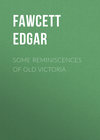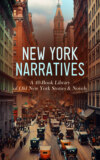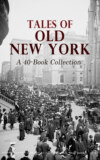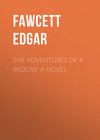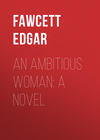Kitabı oku: «Some Reminiscences of old Victoria», sayfa 9
CHAPTER XVIII.
CHRISTMAS IN PIONEER DAYS
"… When I remember all the friends so linked together
… Fond memory brings the light of other days around me."
I have been requested to give my recollection of a Victoria Christmas in the good old days, as to how it was spent and conditions generally. In the first place, in speaking of "the good old days" of the sixties, I would not convey the impression that they were literally so good, for they were, so far as I can remember, some of the hardest that Victoria has seen.
There is a something in recollections of the past that have been pleasant that is indescribable. It is easier felt than described, and I have no doubt is felt by many old-timers in this city to-day. Ask them to describe these feelings and they would be nonplussed. "Mark Twain" was written to by the pioneers of California inviting him to come and speak of the early days of San Francisco, when he was himself a pioneer of the Pacific. What his reply was I now forget, but it was something to this effect: "Do you wish to see an old man overcome and weep as he recalls those pioneer days?" These were a few words of what he said in reply to that invitation. "The good old days" may not have been the most prosperous, nor the happiest that "Mark Twain" may have spent, but there was a something, a charm indescribable that he felt, but could not express. I feel this way myself.
It is Christmas and its surroundings in any age that help to make these pleasing regrets. The incidents and the persons connected with them are gone and can never be recalled. The friends we knew then, whom we may have met at one of those Christmas gatherings, we see them as they pass before our mental vision. Where are they all to-day? The Quadra Street Cemetery might be able to tell, for each is "in his narrow cell forever laid."
I have rambled far enough, and it is time I got to my story.
I would remark in passing that Christmas, to be genuine, should be bright and frosty, with a flurry of snow, and this with walking exercise makes the blood to flow freely, and makes one feel better able to enjoy the festive occasion.
Well, we had just such weather in those days, and such weather is sadly lacking in these. Our climate has changed very much since then. Less snow and cold and more rain now. Tinkle, tinkle, tinkle! The merry sleigh bell! After the advent of the first snow, and when deep enough, there might be heard the sleigh-bell, either on a grocer’s or butcher’s sleigh, or on an improvised sleigh made from a dry-goods case with a pair of runners attached, to which would be fastened a pair of shafts from a buggy or wagon not now usable. Everyone who owned a horse had a sleigh at little cost, and good use was made of it while the snow lasted. Long drives in the country or to church, or to a Christmas party or dance. I can see such a merry sleigh party of young people, the girls well wrapped up peeping over their furs, laughing and dodging the snowballs thrown by a party of boys around the corner, who are always waiting for the next one to come along.
"Where is now the merry party I remember long ago,
Laughing round the Christmas fire, brightened by its ruddy glow;
Or in summer’s balmy evenings, in the field upon the hay?
They have all dispersed and wandered, far away, far away!"
We nearly all went to church – the Anglicans, and many Nonconformists with them – on Christmas morning, and the Catholics on Christmas Eve. But first of all there was the preparation for the event. About a week before wagon-loads of young fir trees were brought in from the outskirts, and every storekeeper and many householders procured enough to decorate the front of the house or shop, a tree being tied to each verandah post. In those days no shop was complete without its wooden awning, as may be seen in many of the old photos of that period. Imagine Government Street, both sides, from end to end, one continuous line of green, relieved with, it might be, white; just enough snow to cover the ground, "bright and crisp and even."
I have often longed for such a Christmas in these degenerate times, when rain is nearly always the order of the day. All the Christmas shopping was done during Christmas week. The fancy goods stores of those days were few – "Hibben & Carswell," "The London Bazaar," and David Spencer. The former was then on Yates Street, corner of Langley, and the other two in Government Street; and I must not forget Thomas Gorrie on Fort Street. There was not the choice in toys and fancy articles then. Children were satisfied with less, and were just as happy. The beautiful and expensive dolls then were of wax, and being susceptible to frost, were taken great care of. The butchers’ and grocers’ shops were then as now a great attraction at Christmas, and we had all to pay one visit at least to Johnny Stafford’s (afterwards Stafford & Goodacre), Thomas Harris’ two shops, and Fred. Reynolds’, on the corner of Yates and Douglas, and I doubt if a better show (for quality) is made to-day.
At Christmas there was the usual influx of miners from far-off Cariboo down to spend the winter in Victoria, with pockets well-lined with nuggets. It was "easy come, easy go" with them, and liberal were the purchases they made for their relations and friends.
Christmas Eve, after dinner, mother or father or both with the children were off to buy the last of the presents, visit the shops or buy their Christmas dinner, for many left it till then. Turkey might not have been within their reach, but geese, wild or tame, took their place. Sucking pig was my favorite dish. Wild duck and grouse (fifty cents per pair), with fine roasts of beef. Of course plum pudding was in evidence with poor as well as rich, although eggs at Christmas were one dollar per dozen.
A great feature of Christmas time was shooting for turkeys and geese at several outlying places, and raffles for turkeys at several of the principal saloons and hotels. The place I best remember was the Brown Jug, kept by Tommy Golden.
A special feature of the saloons on Christmas Eve was "egg-nog," and all we young fellows dropped in for a glass on our way to midnight mass at the Catholic Church on Humboldt Street. It was one of the attractions of Christmas Eve, and the church was filled to overflowing, and later on there was standing room only. We went to hear the singing, which was best obtainable, Mademoiselle La Charme, Mrs. A. Fellows (daughter of Sir Rowland Hill), Charles Lombard, Mr. Wolff, and Mr. Schmidt. These were assisted by the sisters, many of whom had nice voices. Amongst the well-dressed city people were many Cariboo miners – trousers tucked in their boots, said trousers held in position with a belt, and maybe no coat or vest on. When the time came for the collection, all hands dug down in their pockets and a generous collection was the result. My old friend, Tom Burnes, was one of the collectors on one occasion. There were not sufficient collecting plates, and Mr. Burnes took his hat and went amongst the crowd who were standing up in the rear of the church. As he passed through a group of miners, friend Tom was heard to say, "Now, boys, be liberal," and the response was all that could be desired; for, as I said before, it was "easy come, easy go." "Twelve-thirty," service is over, we are off to bed, for we must be up betimes in the morning for service at 11 o’clock.
"When I remember all the friends so linked together," who met on those Christmas mornings long ago, I think, how many are there left? Those of the choir who led in the anthem, "And There Were Shepherds Keeping Watch," and the hymns, "Christians, Awake," and "Hark, the Herald Angels Sing." Of those who met at the church door afterwards to shake hands all round, "A Merry Christmas," "The Compliments of the Season," and many other good wishes – of all these a few are left, amongst them Bishop Cridge, Senator and Mrs. Macdonald, Dr. Helmcken, David W. Higgins, Judges Walkem and Drake, Mrs. Wootton, Charles Hayward, Edward Dickinson, Mrs. Ella, Mr. and Mrs. George Richardson, Mrs. Pemberton, and Mrs. Jesse, and maybe a few others I cannot now remember. Well, all things must come to an end, and so must this reminiscence of an "Early Christmas in Victoria," and in closing I wish all those mentioned here a "Happy Christmas and many of them."
(Note. – Several of those mentioned are since dead. – E. F.)
CHAPTER XIX.
THE QUEEN’S BIRTHDAY FORTY YEARS AGO
The reproduction of an item in the Colonist of "Forty Years Ago," giving a list of the committee formed to prepare a programme for the celebration of the Queen’s Birthday, called my attention to the names of that committee. They are nearly all familiar. His Worship the Mayor, I think, was Mr. Harris, who was our first mayor; next follows Doctor Tolmie, chief factor of the Hudson’s Bay Company; Wm. J. Macdonald, now senator; Lumley Franklin, was a prominent citizen, an English Jew. There were two brothers, the elder being named Selim. They were real estate brokers and auctioneers. Lumley was a clever amateur actor and as a member of the Victoria Amateur Dramatic Association he took a prominent part in all the entertainments for charity in those days. John Wilkie was a Wharf Street merchant. Mr. W. T. Drake was the late Judge Drake; D. B. Ring was a prominent barrister, who, when not in court, might have been seen walking about with a couple of dogs and a hunting crop under his arm. He was one of the old school. Allan Francis, the first American Consul to Victoria, a man liked by everyone; James A. McCrae, an American auctioneer, and very fond of sport; Mr. T. Johnston was manager for Findlay, Durham & Brodie; James Lowe, of Lowe Brothers, Wharf Street, merchants; William Charles, chief factor of Hudson’s Bay Company; Captain Delacombe, in charge of the garrison on San Juan Island; E. Grancini, hardware merchant, with whom Charles Lombard was chief salesman; T. L. Stahlschmidt, of Findlay, Durham & Brodie; Captain Stamp, a millman, representing an English company who owned a large mill at Alberni; Godfrey Brown, late of Honolulu, a clever member of the Victoria Amateur Dramatic Association. I might mention this association had many very clever men as members, who would have graced any stage. Mr. Higgins, with myself, have written of the theatrical performances by this club in early days. Next is A. R. Green, of Janion, Green & Rhodes, of Store Street; J. D. Pemberton, colonial surveyor; J. C. Nicholson, who married pretty Mary Dorman; George J. Findlay, of Findlay, Durham & Brodie; Francis Garesche, of Garesche-Green’s Bank; C. W. R. Thomson, manager of the Victoria Gas Works; George Pearkes, barrister; Lieutenants Brooks and Hastings, of H.M.S. Zealous, the first ironclad to come into the Pacific around Cape Horn, and Sheriff Elliott.
This was a strong committee, for those days. All prominent men and good workers.
Beacon Hill was the head centre of sport, and far enough from town, as nearly all of us walked. But all kinds of conveyances were brought into requisition to take people out, especially from Esquimalt and the country. We had to rely on the navy then as always. The two livery stables of J. W. Williams, on the corner now occupied by Prior & Co., and William G. Bowman, on Yates Street, where the Poodle Dog stands, furnished busses and buggies, and large express wagons were also improvised, seats being put in for the occasion. With my mind’s eye I can see Thomas Harris, first mayor.
The chief event of the day was the horse races, and the mayor was an enthusiastic horse-fancier and steward of the Jockey Club. These attractions were nothing without Mr. Harris, coupled with Commander Lascelles, of the gunboat Forward, a son of the Earl of Harewood, and John Howard, of Esquimalt. The time for the first race is near, the bell rings (John Butts was bellman), and the portly figure of Mr. Harris on horseback appears. "Now, gentlemen, clear the course," and there is a general scattering of people outside the rails, and the horses with their gaily dressed jockeys canter past the grandstand, make several false starts, then off they go. It is a mile heat round the hill, best two out of three to win. Oh! what exciting things these races were to us old-timers, who were satisfied with a little. The grandstand stood due south of the flagpole, and stood there for years after the races were held elsewhere. I must not forget to mention the Millingtons, of Esquimalt, who always rode John Howard’s horses at these meetings; they were born jockeys. I think one of them still lives near Esquimalt. I would we had such Queen’s weather now as we had then. May was then more like what July is now for warmth, with beautiful clear skies; they were days worth remembering. Everyone went out for the day, and whole families might have been seen either riding in express wagons, busses, or trudging along on foot, carrying baskets of provisions. Soon the hill was covered with picnickers, as well as the surrounding woods. There was plenty of good cheer and good-natured folk to dispense that cheer, not only to their own, but to those who had not come provided. "Why, how do you do, Mrs. Smith? Mr. Smith, how are you? You are just in time. Make room for Mrs. Smith, John, alongside you; Annie and Mary can sit by Ellen. Oh, of course, you’ll lunch with us! There, we are all ready now, so fall to!" This is a sample of the good-heartedness of the old-timers. Everyone knew everybody, and all were as one family.
The navy was represented by bluejackets and marines by the hundreds. Bands of music, Aunt Sally, and the usual side shows were there. Aunt Sally was usually run by a lot of sailors, or soldiers, with faces painted like circus clowns, and dressed in motley garments. "Now, ladies and gents, walk up and ’ave a shy at Aunt Sally; the dear old girl don’t mind being ’it a bit; she is so good-natured; that’s a right h’excellent shot that, ’ave another try." The same scene was likely being enacted some distance off with "Punch and Judy," and you may be sure that "Jack" was principal in this show as well, for where there is fun there Jack is. I must not forget the music. Outside the local band there was always a naval band, of a flagship usually, such as the Ganges or Sutlej, which were "three-deckers," line-o’-battleships which would have put an ordinary battleship to blush. It was supposed that the officers subscribed to the band fund, and as there were many officers on a large ship, and well-to-do at that, they had good music. The Ganges band was something worth hearing, about twenty-four strong. It was often heard in Victoria, either at a naval funeral or at some public function. The navy was the mainspring of Victoria in more ways than one. They took part in all public functions, furnishing music, help and flags, and by their presence in uniform brightened up and lent grace to the affair. Do we realize how great a loss their absence to the city is? We ought to have found out the difference by now. The races are over, the day’s celebration is near its end. Some of those who came early with children are tired out and have gone home, others will soon follow, as a general packing up of baskets is going on. "Jack" no longer calls on the passerby to have a shy at Old Aunt Sally, Punch has killed his wife and baby for the last time. Parties of bluejackets are moving off with one playing a tin whistle, to which some are singing. The day draws to a close, and in the words of the immortal Gray, "Now fades the glimmering landscape on the sight," and I close this recital of echoes of a past – Queen’s Birthday forty odd years ago.
Through the kindness of Mr. Albert H. Maynard I am enabled to produce an old picture of Beacon Hill during a celebration.
The following account of the regatta during the celebration of the Queen’s Birthday appears in the British Colonist of May 25th, 1868:
"The first of the festivities forming a part of the celebration of the forty-ninth celebration of Queen Victoria’s Birthday took place on Saturday, and was in every respect a great success. The day, although warmer than usual, was well suited for the picnic parties which occupied the banks of our beautiful Arm, all the way from the bridge to the Gorge. It is estimated that there were one thousand persons assembled altogether. Early in the morning the town bore a most lively appearance, flags were flying from all the principal buildings and the shipping, and by half-past ten the streets were full of well-dressed persons wending their way to the Hudson’s Bay Company’s wharf, where the steam launch and barges of the Zealous were placed at the disposal of the Committee by the Admiral to convey them up the Arm. The managing committee were here represented by Messrs. Stuart and Franklin, whose arrangements were admirable. From the wharf to the Gorge the Arm wore a most animated appearance. From Her Majesty’s gunboat Forward, all decked in colors, which took up her position near the bridge, down to the meanest craft, the water was covered with boats laden with people full of merriment and joy. From Curtis’ Point, where the barges delivered their living freight, the scene was really enchanting. An arch of flags spanning the water, the high banks covered with tents, the bridge and every spot on both sides of the Arm crowded with people, and the roads lined with equestrians, amongst whom were many ladies, gave the happiest effect to the whole scene. We cannot recall a single celebration which was more appreciated or enjoyable than our regatta of Saturday. Much of this success, it must not be forgotten, must be attributed to the gracious manner in which Admiral Hastings co-operated with the committee to secure the comfort and convenience of the public, and without which kindness and attention the day would have been shorn of most of its enjoyment. Owing to the severe illness of His Excellency the Governor he was prevented from being present. We observed Mrs. Seymour, Mrs. Hills, the Admiral, Sir James Douglas and family, the Chief Justice, Colonial Secretary, officers of the fleet and several of the principal officials and families. A more universal assemblage was never known; clergymen of every denomination, men of all politics, people of all nations, rich and poor, in fact, mingled together freely, forgetting the sectional and social differences which divide them, acted as became the occasion, that of honoring the monarch whose virtues are an example to the world. The racing was not so successful as last year, but, nevertheless, was good, and under the management of Mr. Hastings and Mr. Kelly gave perfect satisfaction.
"The amusements concluded by a duck hunt, but the men were not seen by more than a dozen people; it may be considered the only failure of the day. We must not omit to mention that two new racing gigs were built for the occasion, respectively by Mr. Trahey and Mr. Lachapelle, boat builders, who take the greatest interest in the regattas, and spare nothing to make them successful. These boats were both defeated in their maiden races, but the design and workmanship of the Zealous and Amateur, it is said, would reflect credit on any country."
CHAPTER XX.
EVOLUTION OF THE VICTORIA POST-OFFICE
I have before me at the present moment the envelope of an old letter. It was received from England in 1863 by my father. The three stamps on it show a value of 34 cents – one shilling, one fourpence and one penny. It is only a single letter, and a small one at that. In fact, if it were any larger it would have had more postage on it. Just think of the difference between now and then. The first postmaster I remember in Victoria was J. D’ewes. Something went wrong with the finances during his incumbency and he suddenly disappeared with a large sum for a more congenial clime (Australia, I think). D’ewes had one clerk to assist him in the work of the post-office, by name J. M. Morrison. He was succeeded by Mr. Henry Wootton, father of Stephen Wootton, registrar-general, and Edward Wootton, the barrister. Mrs. Wootton, senior, is still with us, hale and hearty, I am glad to say. The late J. M. Sparrow was also connected with the early Victoria post-office with Mr. Wootton. I well remember when the post-office was on Government Street, opposite the C. P. R. telegraph office, in a small wooden structure with a verandah in front, as was the fashion in those days for all business places. I also remember it when it was on Wharf Street, north of the Hudson’s Bay Company’s store, occupying the lower floor, while Edward B. Marvin’s sail-loft occupied the upper. The staff then consisted of Mr. Wootton and J. M. Sparrow, as before stated, with occasional extra assistants, say on the arrival of an English mail, which came then via the Isthmus of Panama and San Francisco. The "whole staff" had to work hard then, and long hours, even into the morning. I have seen a line of letter hunters reaching from the post-office up Wharf Street nearly to Yates, waiting for the mail to be sorted and the wicket to open. I especially remember one evening in 1865. The San Francisco steamer had arrived in the afternoon at Esquimalt, and at eight o’clock there had not been a letter delivered, although the staff had worked like beavers to get the mails sorted. The mails from Europe arrived about twice a month, and not regularly at that. The Colonist would state that "there was no mail again," but that it might be expected to-morrow. It was a day of importance when it did arrive, and people naturally were anxious to get their letters, even if it necessitated their standing in the street in line, maybe at ten o’clock at night. Many a time a dollar has been paid for a favorable place in line near the wicket by someone whose time was considered too valuable to spend in waiting for his turn.
A good deal of banter was indulged in by those in line. The anticipation of their hearing from friends at home made them good-natured, and brought out the best that was in them. And, oh! when the wicket was at last opened, distribution commenced and the line moved on and up, there was a shout of joy and satisfaction. Those were memorable days in Victoria’s history, the good old days of long ago.
I remember again when the post-office was on Government Street again, this time where Weiler Brothers’ building now stands, still in wood, and in no more pretentious a building than the former ones. From there it was moved again up Government Street to the old site, opposite the C. P. R. telegraph office, until that place got too small, and a final move was made to its present location, and a large addition is soon to be made to keep pace with the rapid growth of the city. Letters were an expensive luxury in the early days, as this table of rates will show: To send a half ounce letter to Great Britain cost 34¢., British North American provinces 20¢., France 50¢., Germany 40¢., Holland 57¢., Norway 56¢., Portugal 68¢., Sweden 52¢., and San Francisco 15¢. Most of the letters from the latter place were received by Wells Fargo’s express, and cost, I think, 3¢., and special charge of 25¢. on each letter. I have already described the receipt of Wells Fargo’s express from Esquimalt in the early times, and how John Parker, now of Metchosin, used to meet the steamer at Esquimalt. When she was expected their messenger, whose name was Miller, and a colored man, used to watch from Church Hill, and on her being sighted at Race Rocks the express flag was hoisted in front of their office on Yates Street to let the citizens know the fact. Before the steamer made a landing the letter-bags were thrown ashore to John Parker, and fastened on his horse, then off he galloped to Victoria, the horse being covered with sweat on arrival at the express office, where the letters were called off by Colonel Pendergast, or Major Gillingham, to a crowded audience.
On the death of Mr. Wootton, I believe Mr. Robert Wallace was the next to fill the position, which he did for some years. When he retired he went to his former home in Scotland. On his retirement the position was offered to the present incumbent, Mr. Noah Shakespeare, who so ably fills it. I might say, to show the growth of the post-office in this city since Mr. Wootton’s time, when he with two assistants carried on the work, that to-day the staff, including letter-carriers, numbers forty-eight.
The registered parcels and letters for last year were just twice the year before, with a large increase in money orders, and to show the large increase in letters in one evening at Christmas, twelve thousand were received and cancelled in the post-office.
In conclusion I would ask, were not letters which cost 34¢. postage in those days more appreciated than a lot of letters now at 2¢. each? It is the old story over again, that a thing easy to get is thought little of.
I might say this article was written in May, 1908, and at the present writing, December, 1911, the volume of business of the Victoria post-office has increased nearly fifty per cent. – that is, in three years. It might be interesting to note that of the present staff Mr. Thomas Chadwick, in charge of the money order office, is senior in years of service, having joined the staff in 1880. Next comes Mr. Charles Finlaison, 1882, and Mr. James Smith, 1887. The deputy postmaster, Mr. T. A. Cairns, joined the staff in Winnipeg in 1880, and the Victoria staff in 1882. Mr. Shakespeare, postmaster, has been head of the department here since 1888.
